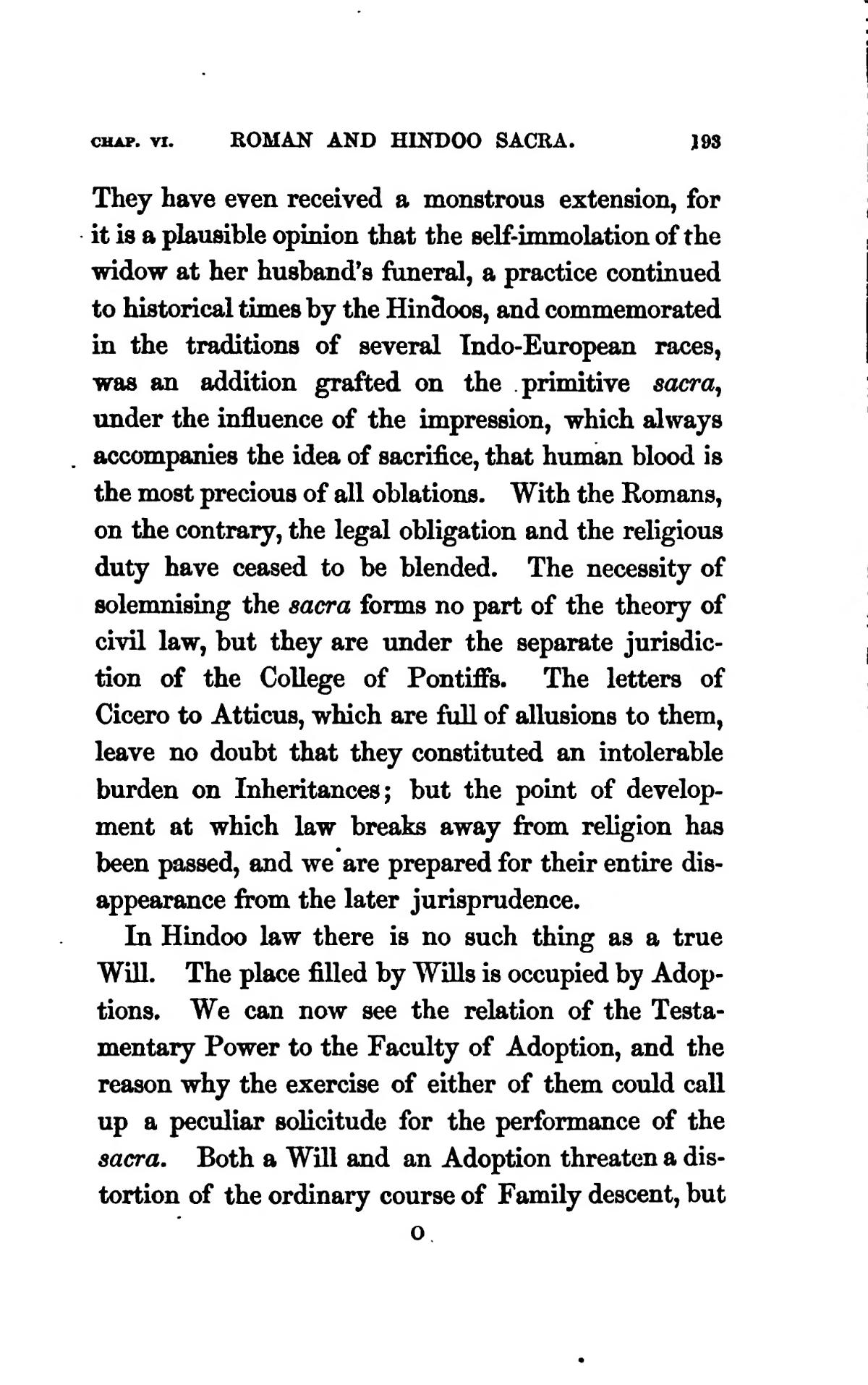They have even received a monstrous extension, for it is a plausible opinion that the self-immolation of the widow at her husband's funeral, a practice continued to historical times by the Hindoos, and commemorated in the traditions of several Indo-European races, was an addition grafted on the primitive sacra, under the influence of the impression, which always accompanies the idea of sacrifice, that human blood is the most precious of all oblations. With the Romans, on the contrary, the legal obligation and the religious duty have ceased to be blended. The necessity of solemnising the sacra forms no part of the theory of civil law, but they are under the separate jurisdiction of the College of Pontiffs. The letters of Cicero to Atticus, which are full of allusions to them, leave no doubt that they constituted an intolerable burden on Inheritances; but the point of development at which law breaks away from religion has been passed, and we are prepared for their entire disappearance from the later jurisprudence.
In Hindoo law there is no such thing as a true Will. The place filled by Wills is occupied by Adoptions. We can now see the relation of the Testamentary Power to the Faculty of Adoption, and the reason why the exercise of either of them could call up a peculiar solicitude for the performance of the sacra. Both a Will and an Adoption threaten a distortion of the ordinary course of Family descent, but
O
